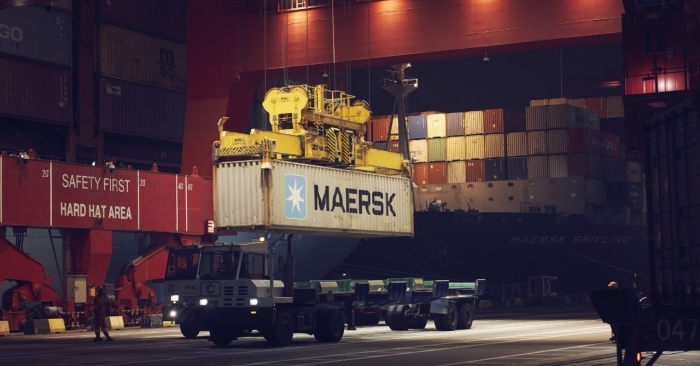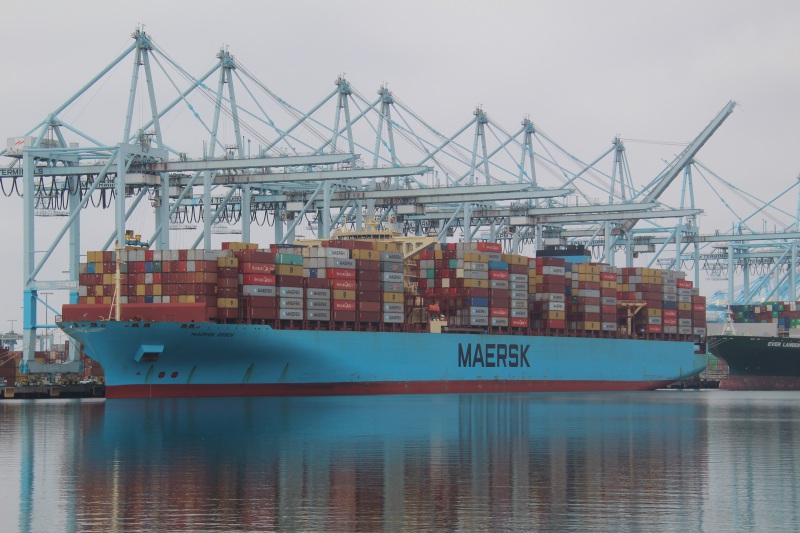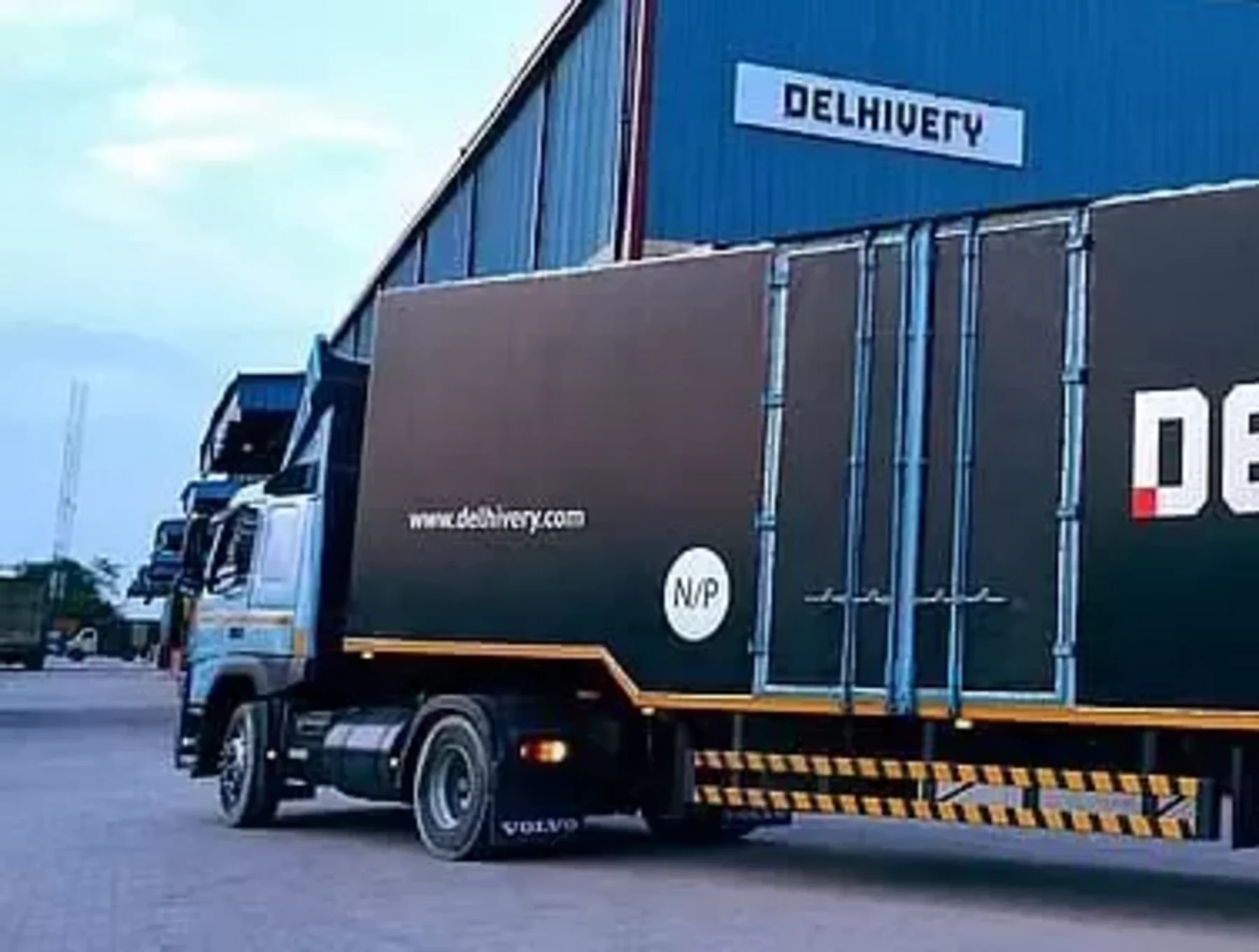Maersk’s Strategic Entry into India’s Rapidly Growing E-Commerce Logistics Sector Projected To Surpass 10 Billion Parcels by FY2028
Maersk, the Denmark-based shipping giant responsible for transporting close to one-fifth of the world's containers, has made a surprising decision to venture into specialized e-commerce logistics solutions for the SME segment in India. This move comes at a time when the last-mile delivery is becoming increasingly critical, despite the anticipated weak global economic growth due to various challenges affecting trade. Maersk's entry into the e-commerce logistics market is seen as an attempt to capitalize on the exponential growth of e-commerce and tap into the potential of India's burgeoning online retail market.

Maersk’s Strategic Entry into India’s Rapidly Growing E-Commerce Logistics Sector
The global trade in goods saw a slight uptick of 1.9% during the first quarter of 2023, adding approximately $100 billion, as reported by UNCTAD. However, persistent inflation, financial vulnerabilities, the war in Ukraine, and geopolitical tensions are expected to hamper global trade, leading to a slowdown in the second quarter of 2023.
These factors contribute to a pessimistic outlook for the global trade scenario in the latter half of the year. Amid these uncertainties, Maersk is focusing on last-mile delivery, recognizing its growing significance in the changing trade landscape.

One of the primary drivers behind Maersk’s foray into e-commerce logistics in India is the exponential growth of the last-mile delivery market, which is projected to reach $123 billion by 2030, up from $40.5 billion in 2021.
Fuelled by the pandemic-induced surge in e-commerce and B2C verticals, the e-tailing market in India witnessed a 22% growth in FY23, with GMVs reaching $60 billion. This substantial growth in e-commerce is set to propel last-mile delivery services, making it an attractive market for Maersk to tap into.
According to Vikash Agarwal, the Managing Director of Maersk South Asia, the “One Country, One Price” solution marks the company’s entry into the e-commerce logistics space by leveraging its core competencies in logistics.

The solution is specifically designed to simplify the supply chains for small- and medium-sized brands in India. By providing a single, flat-rate solution for downstream logistics requirements (B2C) at a competitive cost, Maersk aims to enable these businesses to focus on their core operations while leaving the logistics complexities to the experts.
Amit Sharma, the Growth Manager for Indian Sub-Continent, Middle East, and Africa, explains that the solution entails offering 60 days of storage for cargo at Maersk warehouses, efficient delivery to 18,000 pin codes across India within 48 hours on average, and a 20% returns policy for parcels up to 500 gm, containing a maximum of 3 pieces, all at a nominal rate of Rs 80 per order.
This seamless and integrated approach to e-commerce logistics sets Maersk apart from the competition, which often relies on fragmented solutions and multiple vendors.

India’s E-Commerce Logistics Sector to Witness Rapid Growth, Surpassing 10 Billion Parcels by FY2028
India’s e-commerce logistics space is experiencing a swift growth trajectory and is projected to exceed 10 billion parcels within the next five years (by FY2028). Redseer Strategy Consultants’ report indicates that the segment’s specific business models are poised to emerge stronger in the coming years.
In FY2023, the e-commerce logistics market in India recorded over 4 billion parcels, and based on this trend, it is expected to comfortably surpass 10 billion parcels by FY2028, driven by the rise of new categories, direct-to-consumer (D2C) brands, and continued growth in tier II and III cities. Despite intensified competition and some pressure on yields from e-commerce players, the sector has rebounded after the pandemic years.
The logistics industry contributes approximately 14.4 per cent to India’s GDP and employs a significant portion of the country’s population. It is anticipated that the value of the logistics sector will reach $380 billion by 2025, indicating immense potential for growth in the industry.
Delhivery stands as the dominant player in the e-commerce logistics segment, enjoying insulation from recent e-commerce pressures due to its substantial exposure to non-e-commerce clientele.
The Indian e-logistics market continues to demonstrate meaningful growth, with total shipments for e-commerce logistics reaching $4 billion in FY2023 (excluding hyperlocal shipments). In-house logistics and third-party players hold roughly equal shares within this segment.
Despite challenges from smaller incumbents and declining yields, the e-commerce logistics market remains an attractive long-term investment, with a minimum compound annual growth rate (CAGR) of 20 per cent projected to surpass 10 billion parcels by FY2028, driven by sustained e-commerce expansion.

The Direct-to-Consumer (D2C) segment has emerged as a significant growth opportunity within e-commerce, with D2C brands across channels expected to achieve an overall GMV growth rate of 35 per cent in the next few years, particularly brand.com.
D2C brands are forecasted to generate $33 billion in GMV across all channels by CY2027. Logistics players offering customized solutions for D2C brands are well-positioned to capture market share in this high-growth segment and enjoy a stronger yield profile.
Delhivery retains its market leadership in FY2023 within e-commerce third-party logistics parcels, bolstered by its diverse offerings for D2C brands and its fast-growing non-e-commerce business. These factors make it resilient to recent macro trends in the e-commerce space and enhance its overall standing in the logistics sector.
The Last Bit, Maersk’s strategic move to enter the e-commerce logistics market in India reflects its recognition of the rising importance of last-mile delivery in the global trade scenario.
With the remarkable growth of e-commerce in India, the company’s specialized “One Country, One Price” solution for SMEs positions it as a reliable and comprehensive logistics partner.
By offering simplicity, seamless integration, and cost-effectiveness, Maersk aims to enable small and medium-sized businesses to optimize their supply chains and thrive in the rapidly evolving world of e-commerce.
While the outlook for global trade remains uncertain, Maersk’s focused approach in the Indian market showcases its commitment to shaping the future of logistics in the digital age.




